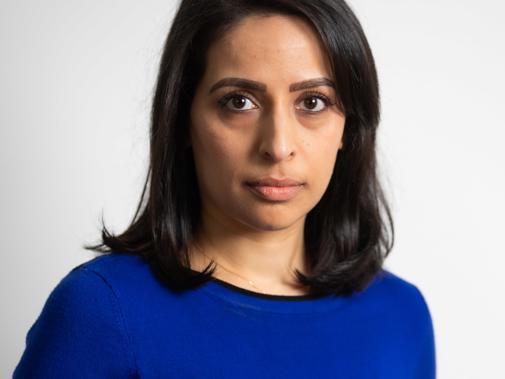All of us have things that we hold dear and which matter to us as individuals.
As doctors and medical students we are driven by our ambition and determination to achieve the personal and professional goals that we set for ourselves in our careers.
At the same time, the very nature of our profession means each of us are deeply committed to protecting life and wellbeing, easing suffering and caring for the countless patients we will encounter during our lives.
It is perhaps not surprising therefore that wanting to make a difference on an issue of personal importance can sometimes be the catalyst to recognising that speaking up for and championing the needs and rights of others is inexorably linked to our own interests and wellbeing.
My own journey to this discovery began more than a decade ago when I first became motivated by a desire to take on some of the injustices I saw around me by becoming actively involved with the BMA.
Outraged by cuts to the NHS bursary and the inequitable access to resources in medical schools, I made my first forays into medico-political activism as a medical student.
Like many people, my initial reasons for becoming involved with my union were personal ones on issues that, at the time, personally affected me.
However, as I became more deeply involved with the work of my association, and as I began to hear more about the experiences of other medical students and doctors needing the BMA’s help, I realised I wanted
to do more.
Hearing about the forms of discrimination they faced and the disparities that existed within the health service and medical profession was what prompted me to continue putting myself forward for election.
As a profession, medicine has often faced criticism for taking a siloed approach. These divisions can manifest through overly focusing on the distinctions between primary and secondary care, between consultants and GPs and between junior and senior doctors.
What I have learnt, however, is that by overly focusing on these differences, we risk forgetting an important reality; that, as doctors and medical students, we are united as one profession.
This belief is at the core of your BMA’s ethos, hence the association’s mantra that it exists to care for doctors, so doctors can care for their patients. We only have to look at some of the issues affecting the NHS today – the unfair and erroneous accusations regarding the role of general practice during the pandemic has led to the shameful scapegoating and persecution of GPs and their colleagues by the Government and the media.
GPs are angry and upset with the way they have been criticised and caricatured, but this anger and indignation should be shared by all doctors – as not only will a fracture in any part of our NHS affect us all, what we are seeing here is an injustice.
In January this year your BMA launched its BAME National Forum of which I am proud to be a member. The forum’s functions include examining what the BMA can do to support minority ethnic colleagues as well as look at what stakeholder organisations such as the NHS need to do.
The forum is a platform for doctors from minority ethnic backgrounds to voice their experiences and contribute to the debate around tackling racial discrimination in our profession and workplaces.
However, examining, confronting and eradicating racism should not be something that is the sole responsibility of ethnic minority doctors and medical students. It is something all of us have a role and responsibility to address.
An attack on any part of our health service is ultimately an attack on all of us in the medical profession. It not only affects us, as individuals and as a profession, but it affects our patients and the care they receive.
As doctors, all of us should be striving for a fair and equitable system for our patients and for each other. As always, if there is anything your BMA can do to help you, do let us know. My DMs are always open.
Dr Latifa Patel is interim chair of the BMA representative body

